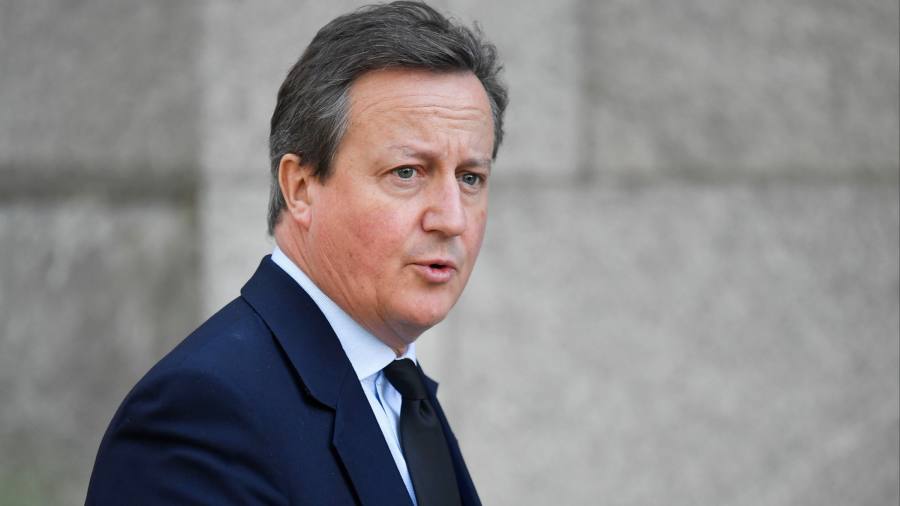
Former ministers will be banned from lobbying the UK government for at least five years after leaving office and transgressors fined under a Labour government, according to plans to be put before the party’s policymaking body this summer.
Senior officials said the move, which comes as the party finalises its general election manifesto, was part of a broader attempt by Labour leader Sir Keir Starmer and his deputy Angela Rayner to “clean up Westminster” following a series of ethics-related rows.
In 2020, the Financial Times reported that former prime minister David Cameron had repeatedly lobbied government officials on behalf of Greensill Capital, his then employer.
In 2021, ex-cabinet minister Owen Paterson quit as a Conservative MP after parliament’s standards commissioner found that he had committed an “egregious breach of paid advocacy” on behalf of two companies.
Labour’s anti-lobbying plan follows a call by the committee on standards in public life, the anti-corruption watchdog, to block former ministers and civil servants from working for private companies for five years after leaving office.
The party’s national policy forum will also examine a proposal to create an Integrity and Ethics Commission, which would be empowered to probe ministers’ conduct without the authorisation of the prime minister and impose sanctions. At present, the premier’s ethics adviser can intervene only at the request of Downing Street.
The body would replace the Advisory Committee on Business Appointments (Acoba), which vets external appointments of former ministers and civil servants.
Acoba’s function is to prevent any suspicion that an appointment might be “a reward for past favours” or the risk that an employer might gain an improper advantage by appointing a former official with information about its competitors or impending government policy.
But while the watchdog has previously barred former government insiders from taking up lobbying work, such rulings usually apply for less than two years.
In March 2022, Acoba told Lord Edward Udny-Lister, a senior adviser to former prime minister Boris Johnson, to delay a move to DP9, a planning advisory group, for six months and not to lobby officials for two years.
Labour is awaiting a ruling from the body on whether Sue Gray, a former senior civil servant, will have to observe an extensive period of gardening leave before she joins as the party’s chief of staff.
Acoba chair Lord Eric Pickles last year called for more powers for the “essentially toothless” body, saying that its rulings could be ignored by “thick-skinned” individuals.
“The system is creaking and long overdue for reform,” he said. “Without reform, further scandals are inevitable.”
His remarks echo Rayner’s description of Acoba as a “toothless watchdog” in need of a stronger mandate.
In 2021, Lord Jonathan Evans, chair of the committee on standards in public life, urged ministers to be banned from lobbying for up to five years after leaving office, with possible penalties for rule-breaking. But his recommendations were largely ignored by the government.
Evans’ comments came after the FT revealed that Cameron had sent numerous messages to former colleagues, including then chancellor Rishi Sunak, to secure Greensill, a supply chain finance company, access to a Bank of England coronavirus loan scheme.
Although Cameron’s efforts were ultimately unsuccessful, they did result in 10 meetings between the supply chain finance company and senior Treasury officials, raising questions about transparency and undue influence.
Cameron has said that his emails, texts and WhatsApp messages to ministers and officials were “not the right way for a former prime minister to engage with government”.
A Labour spokesperson confirmed that the proposals to ban ministers from lobbying for five years after leaving office and set up an ethics commission were on a draft list of policies to be considered by the party’s national policy forum, ahead of the release of its general election manifesto.